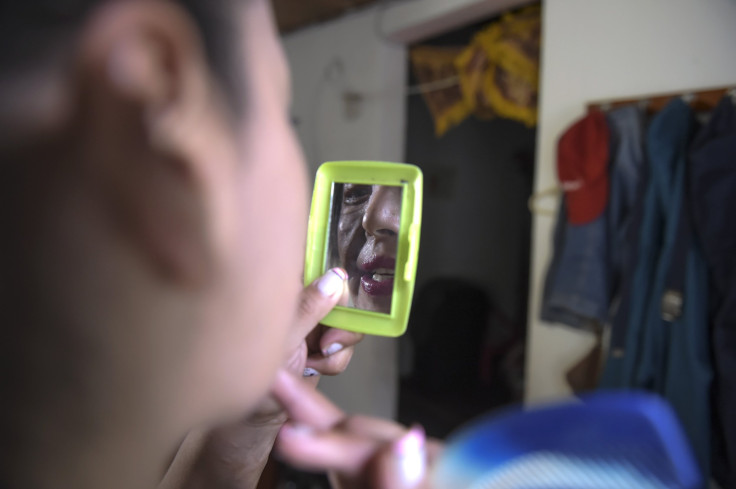What Is Epidermolysis Bullosa? Rare Skin Condition Turns Hands Into Mittens

An employee with the National Health Service (NHS) in the United Kingdom, who was detected with a rare skin condition at the time of her birth that turned her hands into mittens and makes her look like an acid attack victim, has spoken out about her life-long battle.
Myra Ali, 29, was detected with a genetic connective tissue disorder called epidermolysis bullosa (EB) that affects one out of every 20,000 births in the United States, according to the Dystrophic Epidermolysis Bullosa Research Association of America (DEBRA).
According to DEBRA, "Epidermolysis bullosa can result from a genetic mutation in one of 18 genes. These mutations, or errors in the genetic code, do not allow the body to either produce an essential protein or produce a working form of the protein thus resulting in the extremely fragile skin. EB can also be an autoimmune disease in which the body produces antibodies to the structural components of the skin. The severity of EB is generally dependent upon many factors including type, subtype, and inheritance pattern."
"EB has been categorized as encompassing five major types (Simplex, Junctional, Dystrophic, Kindler Syndrome, Aquisita) and 31 subtypes, therefore it is commonly referred to as a group of disorders. Other manifestations of EB include anemia, cardiomyopathy, syndactyly (fusion of the fingers and toes), renal insufficiency, dysphagia (difficulty swallowing), malnourishment, cancer, constipation, osteoporosis, muscular dystrophy, and pyloric atresia," the website stated.
TRENDING: Naked Models Pose As Flight Attendants In Advert For Travel Website
DEBRA, on its website, also stated that EB can be "very painful, often pervasive and debilitating, and is in some cases lethal before the age of 30" and those born with the disorder are sometimes referred to as the “butterfly children” as their skin is as fragile as the wings of a butterfly.
In Ali's case, she had mitten-like palms due to the genetic disorder. Any surgery performed to release her fingers from the situation was temporary. The tissues of her hands formed again after the doctors performed a surgery to separate them. Despite all the pain, Ali says she is a fighter and determined to live like any other young woman. She wears high-heels and well-fitted dresses.
Speaking about her condition, Ali said: “I’ve almost lost the use of both my hands. It’s frustrating as I have to ask people for help.” She also said the disorder made her look like an acid attack victim, Mirror Online reported Wednesday.
“I’m always shocked when people ask me if I’d been in an acid attack, but I just explain I haven’t been attacked but I have a burn-like skin condition. I am determined not to be one of those people who says ‘I’m in pain’ and just chooses to wear something comfortable. It’s not in my nature to be like that,” Ali said.
“Even if my feet are blistered and painful, I will still bandage myself up and put my best high-heeled shoes on. I have a choice — comfy shoes or heels, and I always choose the skyscrapers."
Ali's condition makes it very difficult for her to eat or even brush her teeth because it causes extreme irritation in her throat.
“The pain can be excruciating if that happens. I normally can’t eat for two weeks. That’s one of the major problems with this condition; it’s so painful and unpredictable. One day I am ok, but the next I wake up covered in blisters,” Ali said.
Born on October 30, 1987, at the City Hospital, Birmingham, U.K., Ali had no skin on her feet. The doctors at the hospital performed a skin biopsy on her, following which they confirmed that she suffered from EB. Her parents were told she might develop skin cancer in the future. However, she struggled with the disorder and fought back.
Ali studied history at the University of Birmingham, the Sun reported.
SEE ALSO: Video Shows British Jogger Pushing Woman In Front Of Oncoming Bus
Ali, who currently lives with her mother in Solihull, West Midlands in the U.K., recently got a doctor to perform a non-surgical nose job on her as she disliked the shape of her nose. Dr. Ayad Harb, a plastic surgeon, performed the procedure known as the 3-point Rhino.
Here is a video posted by her on YouTube on Aug. 2 where she speaks about her nose job treatment.
© Copyright IBTimes 2024. All rights reserved.











